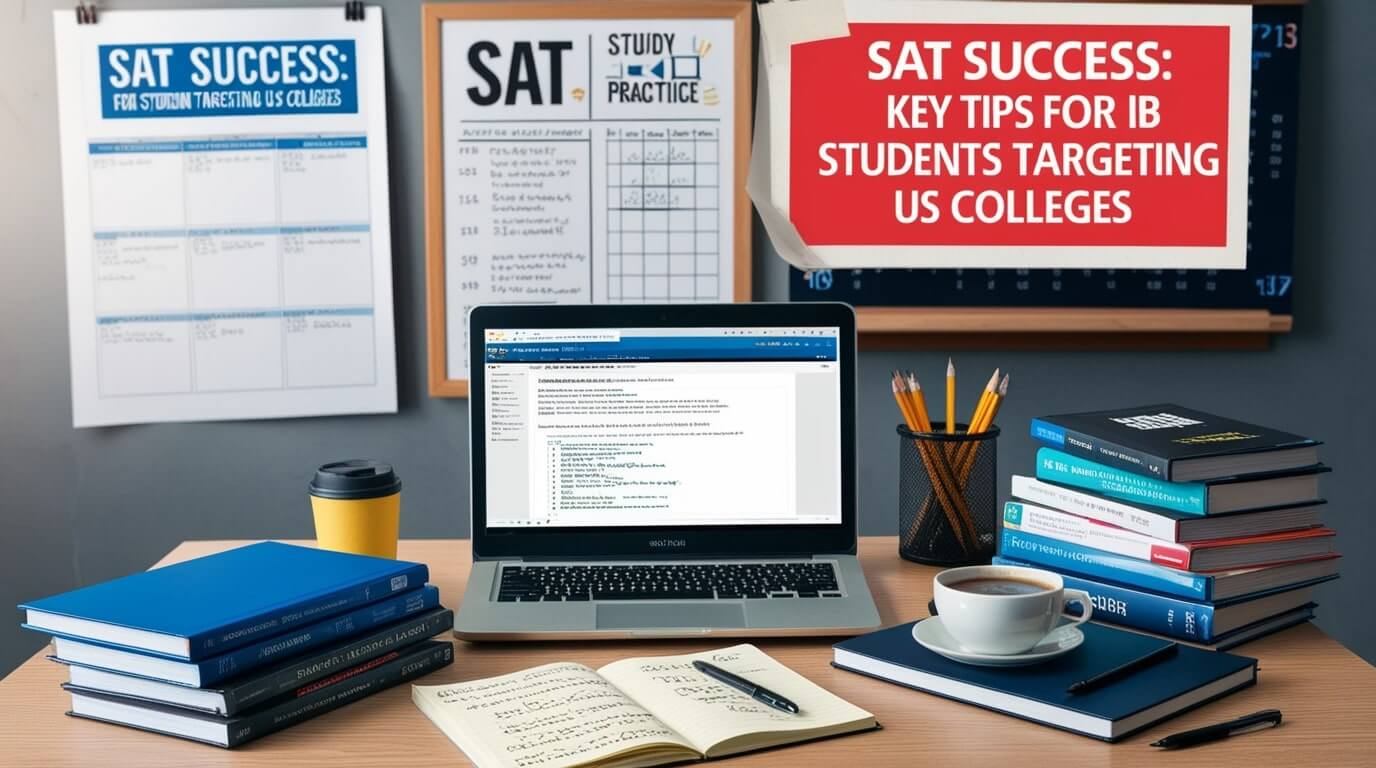IB students with aspirations to study in universities in the USA must take the SAT. The writing and language section of the tests includes reading passages, answering multiple choice questions and identifying editing passages. The section assesses the students' college readiness by testing their communication skills in the key areas of comprehension, language and rhetoric. They must read the text, understand it and apply the information by answering the questions. This section further assesses the student’s ability to structure texts, revise them and enhance rhetorical expressions in standard English conventions.
The first section is the Reading questions and the question type is -
The second section covers writing questions and the question type is:
1. Standard English Conventions
2. Expression of Ideas
This section has two equal-length modules with 25 questions and 32- minutes each. It further includes two pre-test questions. Each module is timed separately and students can opt to answer the questions in any chronology in a given module. The reading passages will generally be 400-450 words in length and the topic can vary in terms of subject, author intent and complexity. SAT evaluates the student’s skills in their expression of ideas, understanding of standard English conventions, words in context and grammar and punctuation. They only test the common grammar rules, so a systematic approach can help here.
The test aims to understand the student’s level of communication and comprehension of the English language as per the college standards. They want to know if you -
Though the questions will not directly ask for definitions of grammar and punctuation rules, these will be an element that you will be scored on. So, brush up on your understanding of subject-verb agreement, and insertion of punctuation to correctly convey the intent, and so on. Some notable grammar rules that are commonly observed in SAT writing section questions are -
Singular - the mouse eats the cheese
Plural - the mice eat the cheese.
In the essay-type questions, it is easy to meander. So, answer these first and pour your ideas on the screen. Then revise your answer by making the correct edits. Also, first, give a direct answer to the question and then explain your ideas in the next sentence. Avoid adding too many descriptive words that prolong the sentence. Keep the statements short and to the point.
You will have roughly 45 seconds to answer each question, so don’t pause to think. Keep writing as you frame your ideas. Once you have finished writing, then articulate your ideas as you edit the answer.
There will be deliberate insertion of inconsistencies in grammar, punctuation or interpretations. This is done to test observational skills and understanding of the English language modalities.
Read each paragraph one at a time and don’t skim through the text. Once you have read the paragraph, answer questions related to it and then move to the next paragraph and answer the questions related to it and so on.
In MCQs, check each answer’s relevance to the question separately and then tick the correct answer. Comparing the answers to one another will help in determining the differences and arrive at the answer faster.
You will study most of the SAT syllabus in IB, but the assessment approach and aim differ. So, try to attempt as many practice test papers while maintaining the time frame as you can. Don’t rush to take the SATs in your first year. Spend time learning the requirements and practising and then attempt it in your second year at IB.
The SAT Writing and Language section assesses your ability to revise and edit text, ensuring clarity and effective communication skills. Colleges consider this section in their admissions process.
Focus on mastering grammar rules, understanding textual structure, and practicing timed writing exercises. Familiarize yourself with SAT-style questions to build confidence and accuracy.
Create a study schedule that allocates time for both IB coursework and SAT preparation. Prioritize tasks, manage time efficiently, and maintain a balanced approach to avoid burnout
© Knowledgeum
